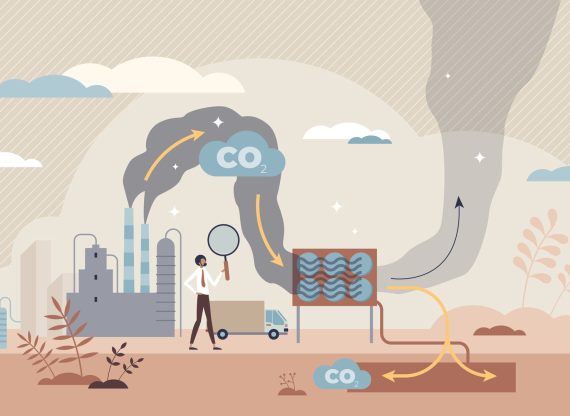Unlocking Canada’s carbon capture potential

Montreal, October 28, 2021 – With the 2021 United Nations Climate Change Conference (COP26) set to begin in a few short days, governments are expected to double down on GHG emission reduction targets. A recent MEI publication described how carbon capture, utilization, and storage (CCUS) technologies can allow governments to reach their targets without compromising our standard of living. A follow-up publication launched today by the MEI offers tangible solutions to encourage uptake of this new technology by entrepreneurs.
“CCUS technologies can trap carbon from GHG emissions at the source and prevent its release into the atmosphere, or capture carbon already emitted and reduce overall atmospheric accumulation. Overall, these technologies present a huge opportunity to reach the government’s goal of net-zero by 2050,” says Krystle Wittevrongel, co-author of the publication.
“The federal government has committed to introducing a tax credit next year for investments in CCUS technologies, although some aspects of the proposed measure need further consideration. For instance, the exclusion of enhanced oil recovery projects should be eliminated, as these projects not only sequester 90% to 95% of the carbon dioxide injected, they are revenue-generating and more likely to be deployed in the short term. In addition, the tax credit should be refundable, levelling the playing field and making it easier for smaller companies to enter the market,” adds the Public Policy Analyst.
“Most importantly, the measure should decouple investment from performance. A performance-based tax credit, such as exists in the United States, would see eligible facilities and projects awarded a credit for each metric ton of carbon captured, which means the carbon tax would be levied on their net emissions. This would really push entrepreneurs to find new and more efficient ways to capture and store (or use) GHG emissions. It really is a win-win,” says Miguel Ouellette, Director of Operations and Economist at the MEI.
“The intensity of Canada’s GHG emissions has fallen substantially in recent years, and the further innovation of emerging CCUS technologies promises to help the government meet its environmental goals, while also favouring economic growth. We know that CCUS is a viable tool in Canada’s climate strategy, so the federal government should ensure that the policies to encourage these technologies are carefully crafted to make them as efficient as possible,” concludes Mr. Ouellette.
The publication entitled “Carbon Capture, Utilization, and Storage: Concrete Market-Based Recommendations to Reduce GHG Emissions” is available on our website.
* * *
The Montreal Economic Institute is an independent public policy think tank. Through its publications, media appearances and advisory services to policy makers, MEI stimulates debate and public policy reform based on established principles of market economics and entrepreneurship.
-30-
Interview requests: Marie-Eve McNicoll, Communications Advisor, Phone: 581-777-5060 / Email: memcnicoll@iedm.org

